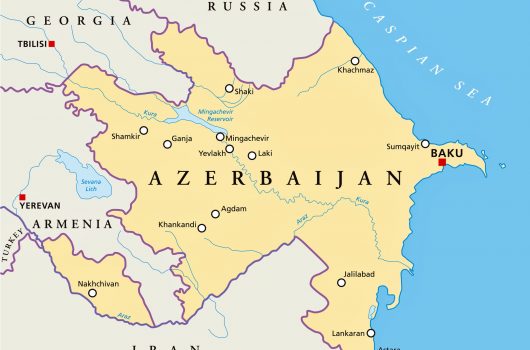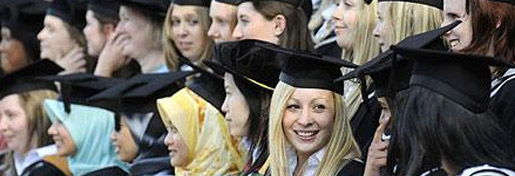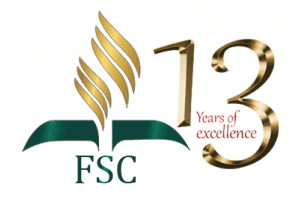Facts About Azerbaijan
Location and Geography


Azerbaijan is situated in the Caucasus region of Eurasia. Three physical features dominate Azerbaijan: the Caspian Sea, whose shoreline forms a natural boundary to the east; the Greater Caucasus mountain range to the north; and the extensive flatlands at the country’s center. About the size of Portugal or the US state of Maine, Azerbaijan has a total land area of approximately 86,600 square kilometers, less than 0.5% of the land area of the former Soviet Union. Of the three Transcaucasian states, Azerbaijan has the greatest land area.
Located in the region of the southern Caucasus Mountains, Azerbaijan borders the Caspian Sea to the east, Georgia and Russia to the north, Iran to the south, and Armenia to the southwest and west. A small part of Nakhchivan also borders Turkey to the northwest. The capital of Azerbaijan is the ancient city of Baku, which has the largest and best harbor on the Caspian Sea and has long been the center of the republic’s oil industry.
History and Population
Azerbaijan, officially the Republic of Azerbaijan is a country in the Caucasus region of Eurasia. Located at the crossroads of Eastern Europe and Western Asia, it is bounded by the Caspian Sea to the east, Russia to the north, Georgia to the northwest, Armenia to the west and Iran to the south. The exclave of Nakhchivan is bounded by Armenia to the north and east, Iran to the south and west, and has an 10 km (6.2 mi) long border with Turkey in the northwest.
The Azerbaijan Democratic Republic proclaimed its independence in 1918 and became the first secular democratic Muslim-majority state. In 1920, the country was incorporated into the Soviet Union as the Azerbaijan Soviet Socialist Republic. The modern Republic of Azerbaijan proclaimed its independence on 30 August 1991, shortly before the dissolution of the USSR in the same year. In September 1991, the Armenian majority of the disputed Nagorno-Karabakh region seceded to form the Republic of Artsakh. The region and seven adjacent districts outside it became de facto independent with the end of the Nagorno-Karabakh War in 1994. These regions are internationally recognized as part of Azerbaijan pending a solution to the status of the Nagorno-Karabakh through negotiations facilitated by the OSCE.
Azerbaijan is a unitary semi-presidential republic. It is one of six independent Turkic states and an active member of the Turkic Council and the TÜRKSOY community. Azerbaijan has diplomatic relations with 182 countries and holds membership in 38 international organizations, including the United Nations (since 1992), the Council of Europe, the Non-Aligned Movement, the OSCE, and the NATO Partnership for Peace (PfP) program. It is one of the founding members of GUAM, the Commonwealth of Independent States (CIS) and the Organization for the Prohibition of Chemical Weapons. Azerbaijan also holds observer status in the World Trade Organization.
While around 97% of the population is Muslim, the Constitution of Azerbaijan does not declare an official religion and all major political forces in the country are secularist. Azerbaijan is a developing country and ranks 87th on the Human Development Index. It has a high rate of economic development and literacy, as well as a low rate of unemployment. However, the ruling party, the New Azerbaijan Party, in power since 1993, has been accused of authoritarian leadership and deteriorating the country’s human rights record, including increasing restrictions on civil liberties, particularly on press freedom and political repression.
Society and Culture
The older generations of people living in the villages emanate a unique feeling which I identify as the essence of the spirit and culture of old Kavkaz (Caucasian) Azerbaijan. In sharp contrast, the younger generation and most of the people in the big cities, especially the capital, Baku, reflect modern western sensibilities more and more. Even so, there are quite a few young Azerbaijanis participating in the high art culture, especially the traditional music, who are able to express the old culture well.
But there is something about village life which imparts a quality, in combination with the unique culture that brings a clear, sharp sense of Kavkaz Azerbaijan which is very much alive even in this modern epoch. It is really a matter of degree more than kind. The people in the cities are still distinctly of Kavkaz Azerbaijani society even though they are no longer villagers who have kept alive that version of society pure and concentrated.
The arts always have a role to play in defining any society and Azerbaijan is no exception. The traditional music of Azerbaijan is enjoyed widely.
There is a cultural gap that cannot be bridged with all the politeness that even an Azerbaijani can muster. They would be relating to an Azerbaijani who has become thoroughly modernized and no longer shares the same values.
The Culture of Azerbaijan was developed under the influence of Iranian, Turkic and Caucasian heritage as well as Russian influences due to its former status as a Soviet republic. Today, western influences, including globalized consumer culture, are prevalent.
There are many ways to take part in Australian culture, from enjoying the vibrant dining out scene to barbequing on a beach, and from taking in a world-class theatre event to throwing on a backpack and doing a scenic hike. Surfing and other water activities are also highlights of Australia. It’s been said that Australia is an easy place to be a tourist even on a limited budget.
Economy
The economy of Azerbaijan has completed its post-Soviet transition into a major oil-based economy (with the completion of the Baku-Tbilisi-Ceyhan Pipeline), from one where the state played the major role. The transition to oil production led to remarkable growth figures as projects came online; reaching 26.4% in 2005 (second highest GDP growth in the world in 2005 only to Equatorial Guinea) and 34.6% in 2006 (world highest) before subsiding to 10.8% and 9.3% in 2008 and 2009 respectively. The real GDP growth rate for 2011 was expected at 3.7% but had dropped to 0.1%. Large oil reserves are a major contributor to Azerbaijan’s economy. The national currency, the Azerbaijani manat, was stable in 2000, depreciating 3.8% against the dollar. The budget deficit equaled 1.3% of GDP in 2000.
Progress on economic reform has generally lagged behind macroeconomic stabilization. The government has undertaken regulatory reforms in some areas, including substantial opening of trade policy, but inefficient public administration in which commercial and regulatory interests are co-mingled limit the impact of these reforms. The government has largely completed privatization of agricultural lands and small and medium-sized enterprises. In August 2000, the government launched a second-stage privatization program, in which many large state enterprises will be privatized. Since 2001, the economic activity in the country is regulated by the Ministry of Economic Development of Azerbaijan Republic.
Cost of Living
The cost of living in Azerbaijan is relatively higher in comparison to other international expat destinations. The country is often considered a hardship destination and expats, therefore, are well compensated to make the move. However, expat salaries are still lower as compared to other destinations like Russia.
Generally speaking, daily expenses in Azerbaijan are reasonably priced, as food is cheap, utilities are subsidized and real estate is much less expensive than other expat destinations.
Education System
Education in Azerbaijan is regarded as an area of activity that constitutes the basis for the development of the society and the state, which has a strategic precaution and superiority. In the Republic of Azerbaijan, the educational system has a democratic, secular character and its basis is national and international values. All citizens are entitled to 9 years of compulsory general education. The right to education is the fundamental right of citizens of the Republic of Azerbaijan. This was established in the Constitution of the Republic of Azerbaijan and in the Education Law of the Republic of Azerbaijan.
Article 42 of the Constitution of the Republic of Azerbaijan states that the right of citizens to be educated is determined as follows:
Education is free and compulsory for children between the ages of six and fifteen. Basic schooling is divided into three: primary education, general secondary and full secondary education.
Information Specific to International Students
The total number of foreign students in Azerbaijan increased steadily over recent years and reached more than 26,000 in 2019. That was roughly double as much as ten years ago.


